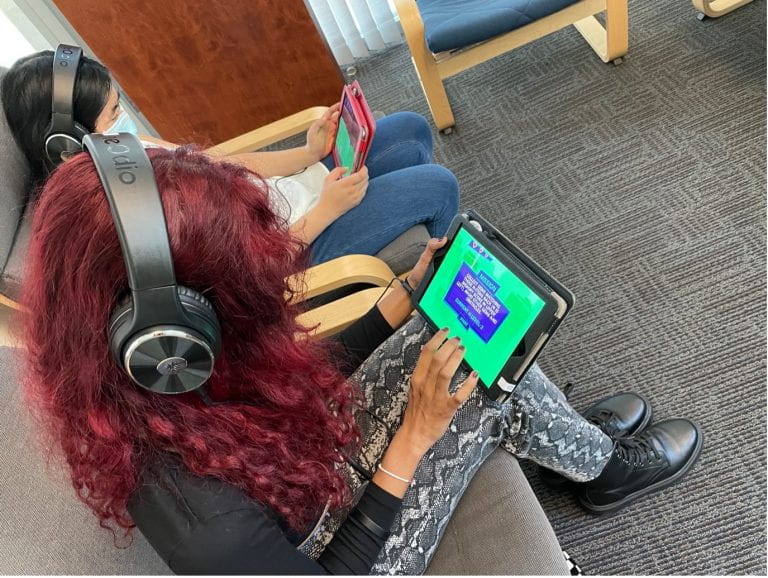UC study finds near-transfer of cognitive training to be necessary (yet not sufficient) for far-transfer, broader benefits

Guicheng “Ariel” Tan / UCI Working Memory & Plasticity Lab
Who benefits from brain training, and why? (UCI release):
If you are skilled at playing puzzles on your smartphone or tablet, what does it say about how fast you learn new puzzles, or more broadly, how well can you focus in school or at work? In the language of psychologists, does “near transfer” predict “far transfer”?
A team of psychologists from the University of California, Irvine and the University of California, Riverside reports in Nature Human Behavior that people who show near transfer are more likely to show far transfer. For a person skilled at playing a game, such as Wordle, near transfer refers to being skilled at similar games, such as a crossword puzzle. An example of far transfer for this person would be the ability to better focus on daily life activities.
“Some people do very well in training, such as playing a video game, but they don’t show near transfer, perhaps because they are using highly specific strategies,” said first author Anja Pahor, a former research scientist with UCI and UCR who is now working in a similar role with the Department of Psychology at the University of Maribor in Slovenia. “For these people, far transfer is unlikely. By better understanding why this type of memory training or ‘intervention’ works for some people but not others, we can move forward with a new generation of working-memory training games or use approaches that are more tailored to individuals’ needs” …
Susanne Jaeggi, UCI professor of education, director of the UCI Working Memory and Plasticity Lab, and a co-author of the research paper, noted that people are constantly being sold brain-training games. “Some studies claim these games work; other studies claim the opposite, making it difficult to interpret the interventions,” she said. “Further, some of these studies have lumped together people who show near transfer with people who show no near transfer. Our paper clarifies some of this confusion.”
The Study:
Near transfer to an unrelated N‑back task mediates the effect of N‑back working memory training on matrix reasoning (Nature Human Behaviour).
- Abstract: The extent to which working memory training improves performance on untrained tasks is highly controversial. Here we address this controversy by testing the hypothesis that far transfer may depend on near transfer using mediation models in three separate randomized controlled trials (RCTs). In all three RCTs, totalling 460 individuals, performance on untrained N‑back tasks (near transfer) mediated transfer to Matrix Reasoning (representing far transfer) despite the lack of an intervention effect in RCTs 2 and 3. Untrained N‑back performance also mediated transfer to a working memory composite, which showed a significant intervention effect (RCT 3). These findings support a model of N‑back training in which transfer to untrained N‑back tasks gates further transfer (at least in the case of working memory at the construct level) and Matrix Reasoning. This model can help adjudicate between the many studies and meta-analyses of working memory training that have provided mixed results but have not examined the relationship between near and far transfer on an individual-differences level.
The Study in Context:
- Large UC study to investigate when and how brain training transfers (or does not) to broader cognitive and health benefits
- Solving the Brain Fitness Puzzle Is the Key to Self-Empowered Aging
- Can brain training work? Yes, if it meets these 5 conditions
- What are cognitive abilities and how to boost them?


